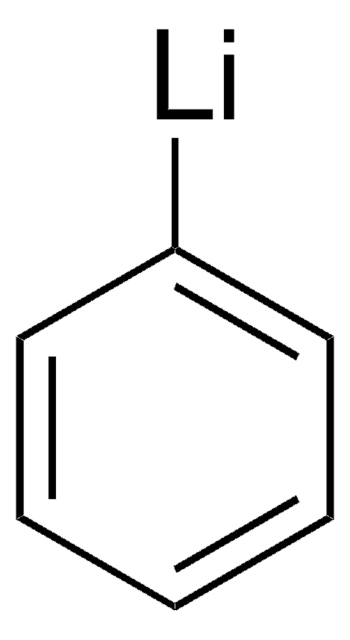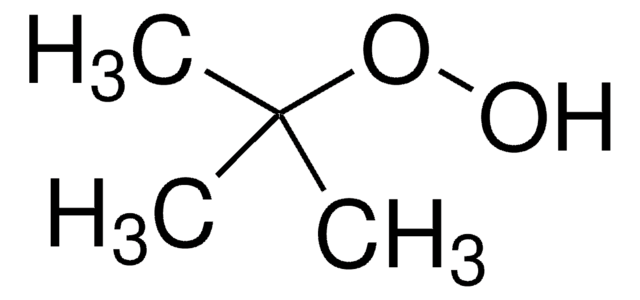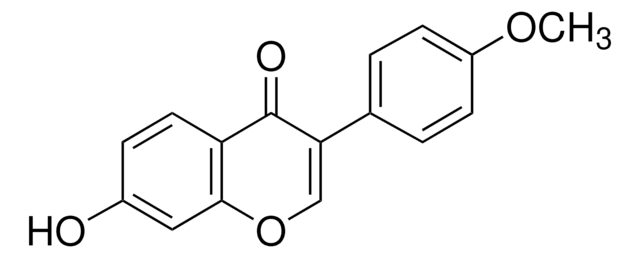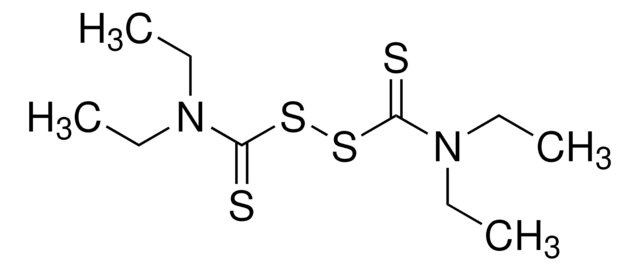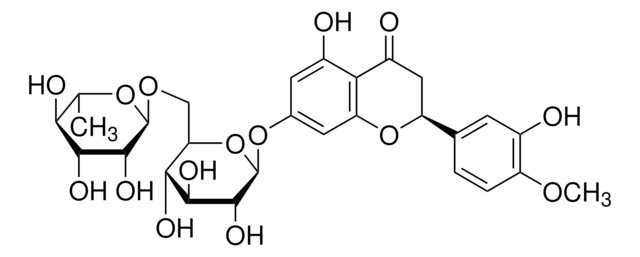274666
Thymoquinone
≥98%
Sinonimo/i:
2-Isopropyl-5-methyl-1,4-benzoquinone
About This Item
Prodotti consigliati
Livello qualitativo
Saggio
≥98%
Stato
solid
tecniche
titration: suitable
Colore
yellow
P. ebollizione
230-232 °C (lit.)
Punto di fusione
45-47 °C (lit.)
applicazioni
diagnostic assay manufacturing
hematology
histology
Temperatura di conservazione
room temp
Stringa SMILE
CC(C)C1=CC(=O)C(C)=CC1=O
InChI
1S/C10H12O2/c1-6(2)8-5-9(11)7(3)4-10(8)12/h4-6H,1-3H3
KEQHJBNSCLWCAE-UHFFFAOYSA-N
Cerchi prodotti simili? Visita Guida al confronto tra prodotti
Descrizione generale
Applicazioni
Thymoquinone is employed in preclinical studies as a neuroprotective and anticonvulsant agent.
Avvertenze
Warning
Indicazioni di pericolo
Consigli di prudenza
Classi di pericolo
Acute Tox. 4 Oral - Eye Irrit. 2 - Skin Irrit. 2 - STOT SE 3
Organi bersaglio
Respiratory system
Codice della classe di stoccaggio
11 - Combustible Solids
Classe di pericolosità dell'acqua (WGK)
WGK 3
Punto d’infiammabilità (°F)
219.2 °F - closed cup
Punto d’infiammabilità (°C)
104 °C - closed cup
Dispositivi di protezione individuale
dust mask type N95 (US), Eyeshields, Gloves
Scegli una delle versioni più recenti:
Possiedi già questo prodotto?
I documenti relativi ai prodotti acquistati recentemente sono disponibili nell’Archivio dei documenti.
I clienti hanno visto anche
Il team dei nostri ricercatori vanta grande esperienza in tutte le aree della ricerca quali Life Science, scienza dei materiali, sintesi chimica, cromatografia, discipline analitiche, ecc..
Contatta l'Assistenza Tecnica.